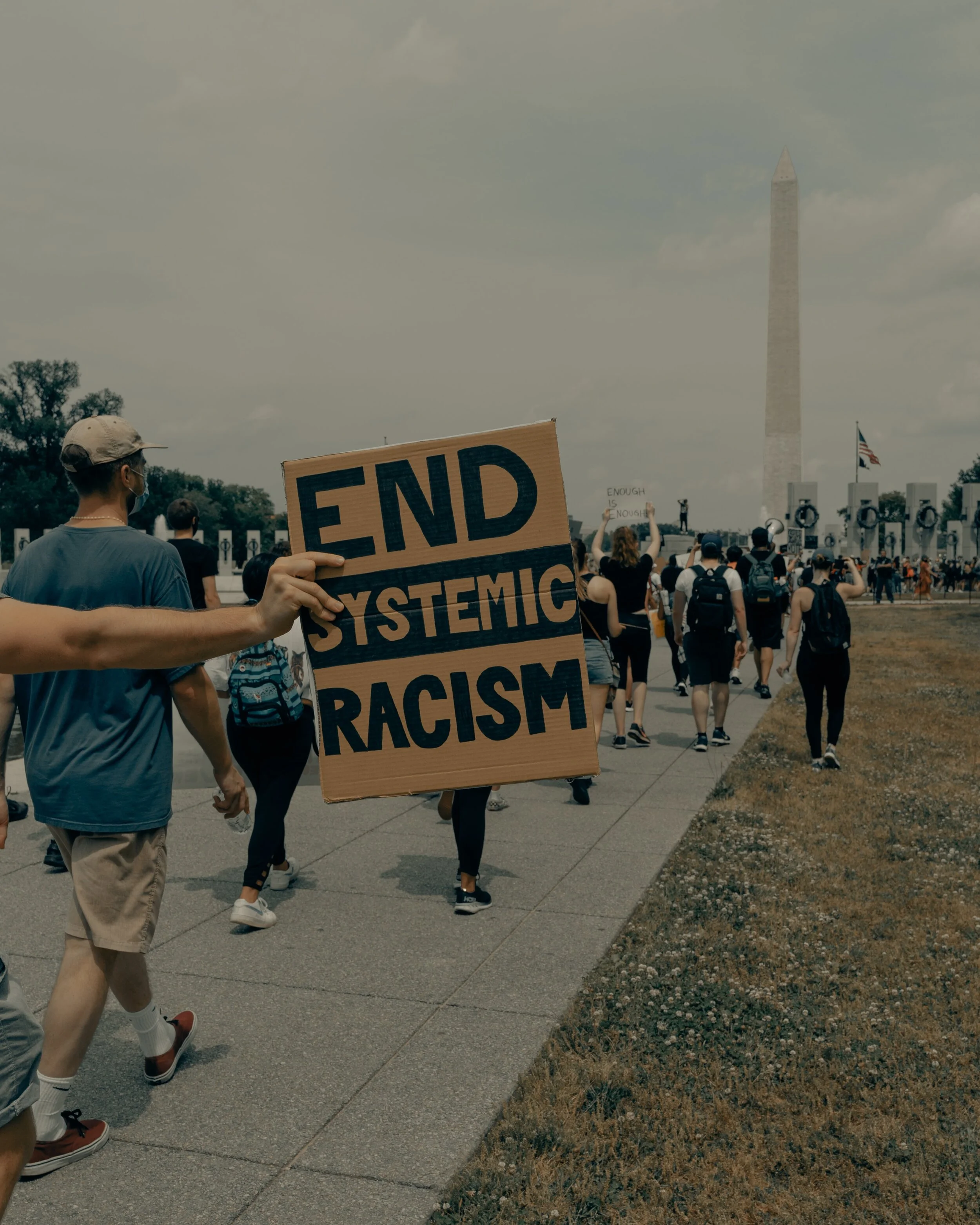Ending systemic racism in foreign policy
There can be no equitable foreign policy workforce without first dismantling systemic racism, anti-Blackness and white supremacy in the institutions, organisations, NGOs and companies responsible for shaping and implementing policies, or setting up new ones based on anti-racist principles. Only then can we hope to build just and equitable systems both at home and abroad.
Many existing foreign policy institutions hold a direct responsibility in the institutionalisation of racism in their own country and abroad. As a sector, we need to reckon with and actively dismantle this legacy.
Moving towards anti-racist foreign policy organisations means putting in place inclusive hiring practices and then ensuring that the workplace is set up in a way that helps Black womxn and womxn of colour to belong. We specifically mention hiring here because Women in Foreign Policy’s mission is to achieve a foreign policy workforce where everyone belongs, which means challenging and upending the power dynamics and privileges at play.
This starts by looking at our own practices in-house, especially in the racial make-up of our volunteer team and the voices we feature in our media: our Interviews section, The Zig Zag career blog, our podcast, newsletter and event speakers. We will be publishing this data as well as a plan to address it in July.
This week, we are signing the Women of Color Advancing Peace, Security & Conflict Transformation - United Kingdom’s Chapter (WCAPS-UK) European Statement of Solidarity, which says “the UK and its neighbouring European countries share responsibility for [systemic racism] throughout history having built them into the fibre of their own societies, and played a vital role in their creation.” You can read the full letter and a list of signatories here.
As one of the signatories, we are planning to draw on the 12 commitments WCAPS-UK lays out to create our roadmap for internal change. Some of them are more applicable than others to us as a small structure without funding but we will abide by them as we grow.
1. “Actively change the face of international peace and security by ensuring that our organizations reflect the diversity of the peoples they purport to represent, and at all levels.”
2. “Diversify our boards of directors and advisory committees to include Black people and people of colour.”
3. “Elevate the voices of Black people and people of colour in the media and through other public engagements.”
4. “Educate our leadership and staff on the prevention of racism and discrimination, and on their detrimental impacts.”
5. “Call out racism and share the burden of dismantling racist structures in the UK.”
6. “Acknowledge microaggressions and their detrimental impact on Black people and people of colour in the workplace, be that in academia, industry, think tanks, or elsewhere.”
7. “Provide support, including financial support and resources, to groups that are led by Black people and people of colour that promote our values.”
8. “Acknowledge the contributions of Black people and people of colour and credit their work in the fields of international peace and security.”
9. “Develop a safe workplace where Black people and people of colour can share their concerns on issues of racism and racial discrimination.”
10. “Develop meaningful diversity, inclusion, and equity strategies for Black people and people of colour, and our efforts on gender diversity will include women of colour.”
11. “Develop processes for hiring individuals from local and low-income communities.”
12. “We will develop mentorship programs for Black people and people of colour in our organizations.”
These principles will direct us as we interact and partner with other UK- and Europe-based foreign policy organisations.
Our Founder Lucie Goulet is committing to not sitting on all-white panels or panels which don’t enable people of colour to share their experiences and to call out racism in the way questions might be asked and speaking time shared. If she’s invited to such panels, she will instead suggest Black experts and experts of colour if possible.
We are also committing to continue to feature Black womxn and womxn of colour in the context of their professional expertise and experience, and not solely under the lens of anti-racism. Our panels will feature Black womxn and womxn of colour and we won’t put on all-white panels.
We are aware that changes have to happen on an organisational-level and also a sector-wide level. We are committed to helping to make these changes as part of a wider community doing the work of ending systemic racism, including many organisations with a track record on anti-racism. This list is by no mean exhaustive. We will review it quarterly and report on it against the steps we’ve taken and additional ones we are implementing and we welcome input from our community and the wider sector.


